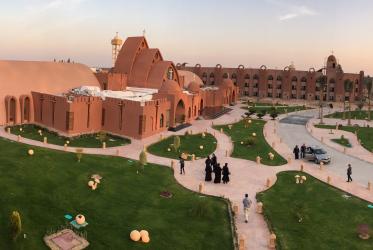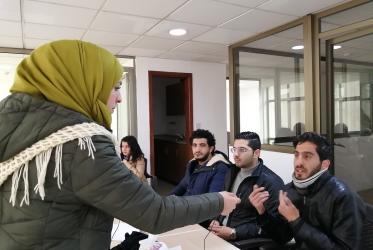Displaying 1 - 20 of 202
Promoción de la dignidad humana a través del arte
07 September 2022
Förderung der Menschenwürde durch Kunst
07 September 2022
Promotion de la dignité humaine par l’art
07 September 2022
Promoting human dignity through art
06 September 2022
Are migrants seen and heard? Conference presses the question
19 October 2020






